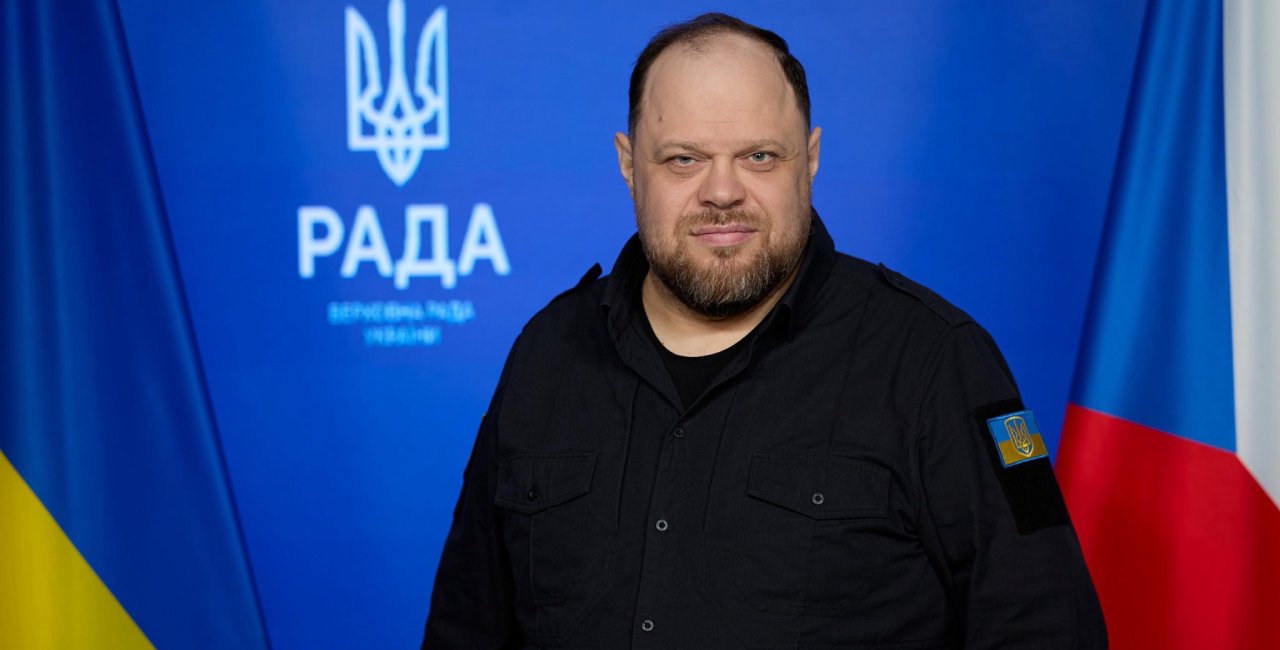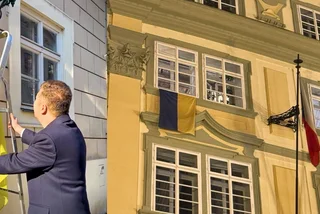The Czech flag was raised in Ukraine’s parliament on Friday in a symbolic gesture of gratitude after the Ukrainian flag was removed from Prague’s Chamber of Deputies. Ukrainian Parliament Speaker Ruslan Stefanchuk announced the move on social media, emphasizing the Czech people’s support amid Russia’s ongoing war in Ukraine.
In Prague, newly elected Speaker Tomio Okamura ordered the removal of the Ukrainian flag from the parliament building, fulfilling a campaign promise to display only Czech national symbols. The move sparked criticism across the political spectrum and raised questions about the country’s stance on Ukraine.
Gratitude and solidarity
Stefanchuk highlighted the Czech Republic’s aid and protection for Ukrainian citizens since the start of Russia’s full-scale invasion in February 2022. In a lengthy post on X shared in English, Ukrainian, and Czech, he praised the country’s continued support.
“[The Czech flag flies] as a sign of gratitude to the Czech people for their immense help and unwavering support of Ukraine, which continues to suffer from Russian aggression. For their compassion. For their solidarity,” he wrote.
He also referenced high-profile visits and initiatives, including Czech Senate Speaker Miloš Vystrčil’s April 2022 trip to Kyiv and the Crimean Platform in Prague, noting that “like millions of Ukrainians, I will never forget the shelter and protection generously offered by the Czech people to our citizens.”
Stefanchuk also noted Russia’s role in historical events in Czechoslovakia, and quoted words from Václav Havel, Czechia’s first president.
“I also want us to always remember Moscow’s criminal role in the dismemberment of Czechoslovakia in 1938 and in drowning the Prague Spring in blood in 1968. Because, as the first President of the modern Czech Republic, Václav Havel, once said: ‘Russia, of course, still doesn’t know where its borders are.’
“[Havel] warned us: ‘Russia will revive those of its traditions that are historically typical for it—the imperial tradition of expansion into directions and territories that, in essence, do not belong to it.'”
Domestic political context
In Prague, the flag removal was met with immediate backlash. Outgoing coalition members hung three new Ukrainian flags on the Chamber of Deputies building within hours of Okamura’s order. Former Defense Minister Jana Černochová called the action an embarrassing display, posting a photo of her party’s flag on the building and stating, “The House of Representatives is not his property.”
Leaders across Czechia’s political spectrum condemned the decision. Pirate Party chairman Zdeněk Hřib said the removal “is difficult to imagine as a more symbolic demonstration of distorted priorities.” Russian state media, by contrast, framed the act as a shift away from previous Czech support for Kyiv, highlighting the international implications of domestic decisions.
While largely symbolic, the dispute over flags carries practical significance. Public displays of international solidarity can influence diplomatic engagement, aid programs, and visa or residency policy decisions. Ukrainian nationals in Czechia may also view government gestures as indicators of social support or political climate.
The Czech-Ukrainian flag dispute is likely to remain in the public eye as officials from both countries continue to exchange statements. Stefančuk’s gesture signals Ukraine’s commitment to maintaining diplomatic and humanitarian ties with Czechia, while domestic debates over national symbols are expected to continue under Okamura’s new leadership.

